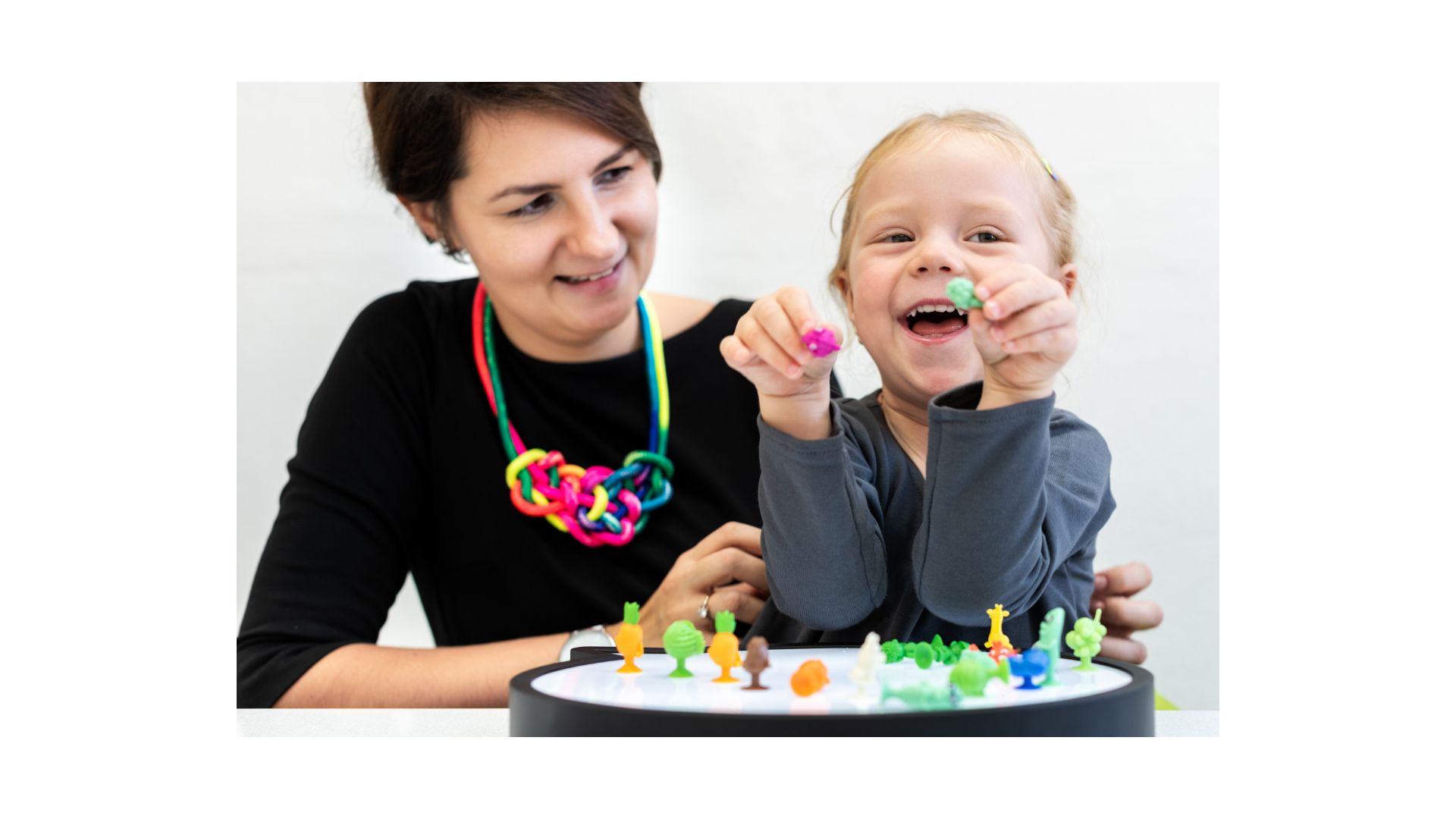In the realm of autism therapy, where each child’s journey is unique, one element remains constant: the transformative power of play. Autism Spectrum Disorder (ASD) presents a spectrum of challenges, from communication difficulties to social interactions, often leaving parents and therapists seeking innovative approaches. Amidst this complexity, play emerges as a beacon of hope, offering a bridge to connection and development. This blog delves into the significance of play in autism therapy, exploring how it serves as a versatile tool for learning, communication, and emotional regulation. From structured activities to spontaneous play, every interaction becomes an opportunity for growth. Join us as we unravel the magic of play in unlocking the potential within every child on the spectrum, illuminating a path towards holistic and joyful therapy.
Types of Play Therapy for Children with Autism
Play therapy offers a dynamic and effective approach to supporting children with autism spectrum disorder (ASD) in their development and growth. Through various types of play, therapists can engage children in activities that promote communication, social interaction, sensory regulation, and emotional expression. In this article, we’ll explore eight types of play therapy specifically tailored for children with autism, highlighting their unique benefits and applications in therapeutic settings.

Sensory Play Therapy
Sensory play therapy focuses on engaging children in activities that stimulate their senses, such as touch, sight, sound, smell, and movement. For children with autism, who often experience sensory processing differences, sensory play can help regulate their sensory input, improve sensory integration, and enhance overall self-regulation. Activities may include playing with textured materials, exploring sensory bins, or engaging in proprioceptive activities like swinging or jumping on a trampoline.
Pretend Play Therapy
Pretend play therapy encourages children to use their imagination and creativity to engage in pretend scenarios and role-playing activities. Through pretend play, children with autism can practice social skills, perspective-taking, and problem-solving in a supportive and structured environment. Therapists may use props, costumes, and thematic play sets to facilitate pretend play scenarios tailored to the child’s interests and developmental goals.
Structured Play Therapy
Structured play therapy involves providing children with clear rules, routines, and guidelines for play activities. This type of play therapy can be particularly beneficial for children with autism who thrive on predictability and structure. By providing a structured framework, therapists can help children with autism learn important skills such as turn-taking, following instructions, and transitioning between activities.
Social Skills Play Therapy
Social skills play therapy focuses on helping children with autism develop and practice social interaction skills in a supportive and interactive setting. Therapists may use games, group activities, and role-playing exercises to teach skills such as initiating conversations, making eye contact, and interpreting social cues. Through social skills play therapy, children with autism can build confidence and competence in their social interactions.
Art Therapy
Art therapy utilizes various art mediums, such as drawing, painting, sculpting, and collage, to help children with autism express themselves creatively and explore their thoughts and feelings. Art therapy can be particularly beneficial for children who have difficulty verbalizing their emotions or experiences. Through art-making, children with autism can communicate and process their emotions in a non-verbal and therapeutic manner.
Empowering Parents: Incorporating Play into Daily Routines for Children with Autism
Empowering parents with practical strategies to incorporate play into daily routines can significantly support the development of children with autism spectrum disorder (ASD). By infusing play into everyday activities, parents can create opportunities for learning, communication, and social interaction within the comfort of home. Here are key points to seamlessly integrate play into daily routines for children with autism.
- Morning Routine Play: Turn morning routines like getting dressed and brushing teeth into playful activities by incorporating songs, sensory experiences, or simple games. This sets a positive tone for the day and promotes cooperation and engagement.
- Mealtime Play: Use mealtime as an opportunity for sensory exploration and interaction. Introduce new foods through playful activities like sorting, stacking, or creating food art, making mealtimes more enjoyable and encouraging adventurous eating habits.
- Transitional Play: Make transitions between activities smoother by incorporating playful rituals or visual schedules. This helps children with autism understand expectations and reduces anxiety associated with transitions.
- Outdoor Play: Outdoor play provides valuable sensory experiences and opportunities for physical activity. Encourage outdoor play by incorporating sensory-rich materials like sand, water, or nature items, fostering exploration and creativity.
Benefits of Play-Based Learning for Children with Autism
Play-based learning is a powerful educational approach that harnesses the natural inclination of children to learn through play. For children with autism spectrum disorder (ASD), play-based learning offers a dynamic and effective way to support their development across various domains. In this article, we’ll explore eight key benefits of play-based learning for children with autism, highlighting how this approach fosters communication, social interaction, sensory regulation, and overall growth.
Promotes Communication Skills
Play-based learning provides opportunities for children with autism to practice and develop their communication skills in a natural and enjoyable context. Whether engaging in pretend play, interactive games, or sensory activities, children can use language to express their thoughts, needs, and desires. Through playful interactions with peers and adults, children with autism can improve their vocabulary, sentence structure, and conversational abilities.
Enhances Social Interaction
Play-based learning encourages social interaction and collaboration among children with autism, promoting the development of essential social skills. In play settings, children learn to take turns, share toys, cooperate with others, and negotiate social situations. Through shared play experiences, children with autism can build friendships, develop empathy, and learn the nuances of social communication.
Supports Sensory Regulation
Many children with autism experience sensory processing differences that can impact their ability to regulate their sensory experiences. Play-based learning provides opportunities for sensory exploration and regulation through activities that engage the senses. Whether through sensory bins, tactile play, or movement activities, children with autism can learn to manage sensory input, increase their tolerance for sensory stimuli, and improve their overall sensory regulation skills.
Encourages Emotional Expression
Play-based learning offers a safe and supportive environment for children with autism to express and explore their emotions. Through imaginative play, storytelling, and creative activities, children can act out and process their feelings in a non-threatening context. Play allows children to experiment with different roles and scenarios, facilitating emotional understanding and expression.
Fosters Cognitive Development
Play-based learning stimulates cognitive development in children with autism by encouraging problem-solving, critical thinking, and creativity. Whether constructing with blocks, solving puzzles, or engaging in pretend play scenarios, children with autism exercise their cognitive skills in meaningful ways. Play-based learning promotes exploration, experimentation, and discovery, fostering cognitive growth and development.
Conclusion
Play is a vital component of autism therapy, providing a unique and effective way to engage children with autism and promote their development. At Above And Beyond Therapy, Inc, our experienced therapists understand the importance of play in building trust, fostering communication, and enhancing social skills. By incorporating play-based therapy into our treatment plans, we empower children with autism to reach their full potential and live happier, healthier lives.
If you are seeking a comprehensive autism therapy program that incorporates play-based therapy, please contact us at Above And Beyond Therapy, Inc. Located in Van Nuys, California, our team of experts is dedicated to providing personalized care and support to individuals with autism. Call us today at 17472656666 to schedule a consultation and take the first step towards a brighter future for your child.

